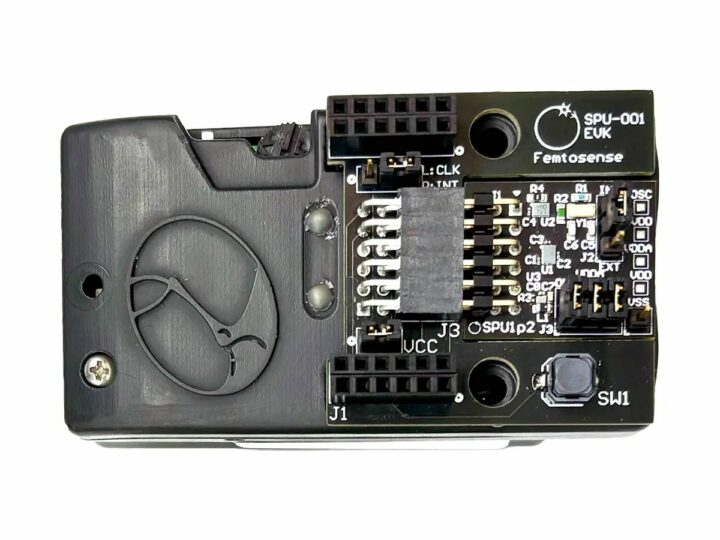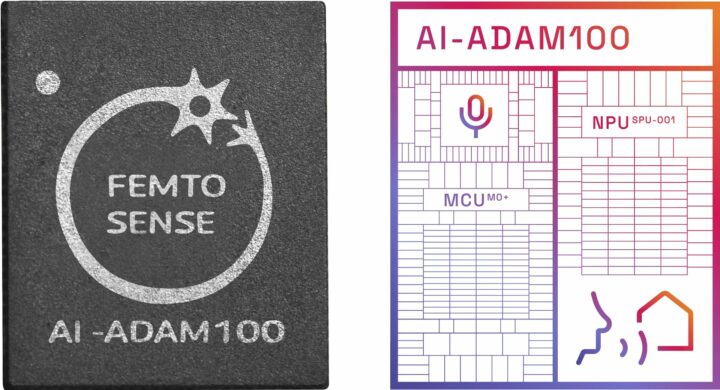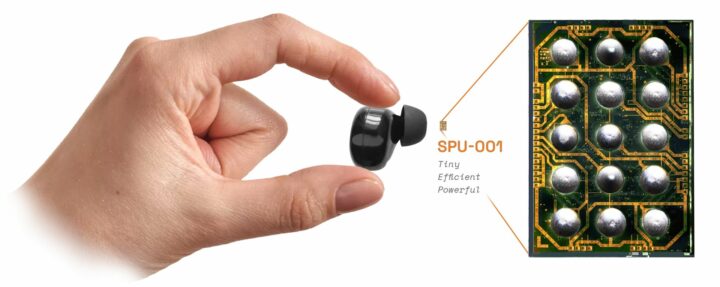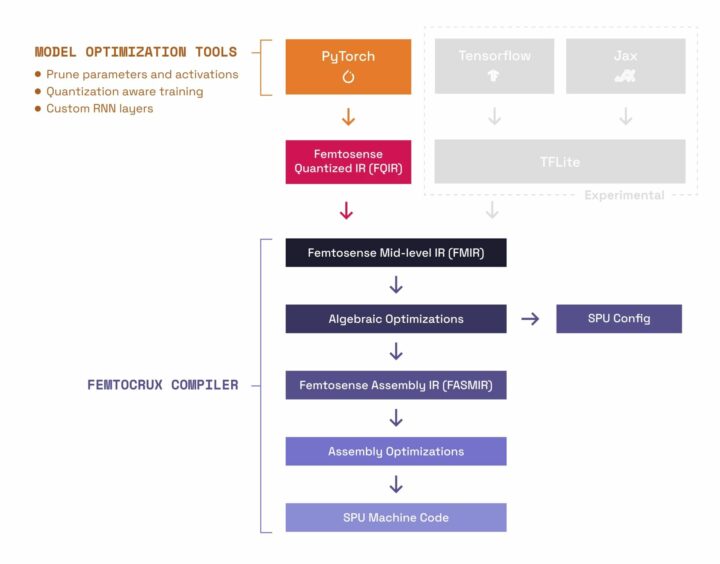Femtosense’s newest release, the AI-ADAM-100, combines a low-power Arm Cortex M0+ microcontroller from ABOV Semiconductor with the Femtosense Sparse Processing Unit (SPU), an in-house neural processing unit. This combination powers AI voice processing and cleanup capabilities on edge devices.
It leverages sparsity techniques to ensure that models can run on edge devices without intensive processing. Sparsity in AI refers to the presence of zeroes or non-zero values in the matrices and tensors used in machine learning models. No computation is required for these zero weights, heavily reducing processing requirements.
The Femtosense AI-ADAM-100 aims to bring voice control to various devices such as home appliances, hearing aids, industrial headsets, and consumer earbuds. These appliances can implement voice user interfaces that allow users to talk naturally in their own words. On-device voice cleanup functionality would reduce infrastructure costs and improve the accuracy of the data sent to the cloud. The Femtosense SiP also enables home appliance manufacturers to implement wake words for reduced power consumption.
Femtosense AI-ADAM-100 system-in-package specifications:
- MCU – ABOV Semiconductor ARM Cortex-M0+ microcontroller
- Flash memory – 64/32 KB MCU code flash memory
- SRAM – 8 KB
- Co-processor – Femtosense SPU-001 NPU with 1 MB of NPU SRAM (10 MB effective with sparsity)
- NPU – 22 nm process | MCU: 130 nm process
- Sub-mW receiver for speech, audio, and 1-D data
- Host interface – SPI
Femtosense offers a software development kit with advanced sparse optimization tools, a hardware simulator, and the Femtocrux compiler for deployment. Custom AI models can be deployed to the Sparse Processing Unit with or without finetuning. Femtosense also provides a few ready-to-go demo AI models for noise cancellation and voice interfacing.
Currently, there are no development boards for testing the AI-ADAM-100, but there are two evaluation boards for the SPU-001 neural processing unit. The Evaluation Board (EVB) supports integration with external host systems with 16MB onboard flash and a PMOD header that offers full access to the SPU pins. The Evaluation Kit 2 (EVK2) is more capable with a Cortex-M7 host processor (with floating point unit), 2x onboard MEMS microphones, 3.5mm audio jacks for input/output, and a microSD card reader. It also integrates a host connector board from the open-source hearing aid platform, Tympan.

We have covered other MCU-grade edge AI products and chips such as the Infineon CY8CKIT-062S2-AI evaluation kit, Ambiq Apollo510 Arm Cortex-M55 MCU, Tokay Lite ESP32-S3 no-code AI camera, and more.
The AI-ADAM-100 is currently in pre-production and engineering samples can be acquired by contacting the company, with mass production scheduled for later this year. More information can be found on the product page and press release.
Thanks to TLS for the tip.

Tomisin is a writer specializing in hardware product reviews, comparisons, and explainers. He is very passionate about small form factor and single-board computers.
Support CNX Software! Donate via cryptocurrencies, become a Patron on Patreon, or purchase goods on Amazon or Aliexpress







